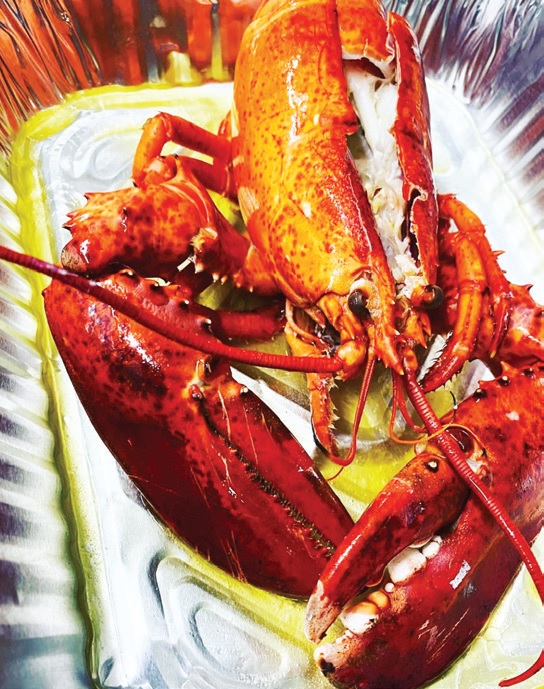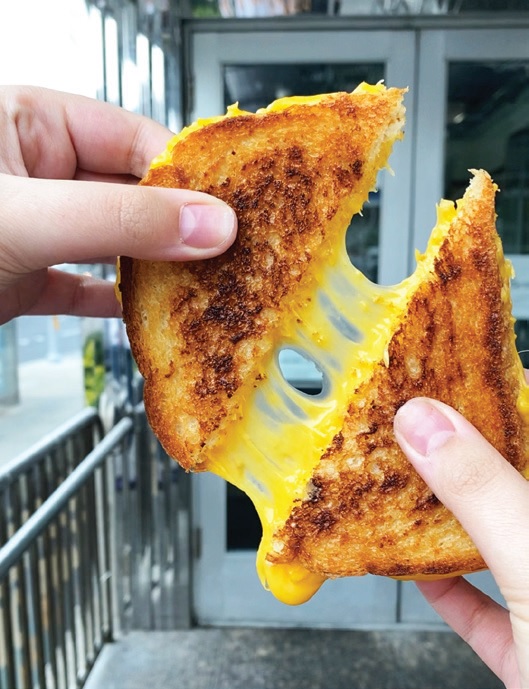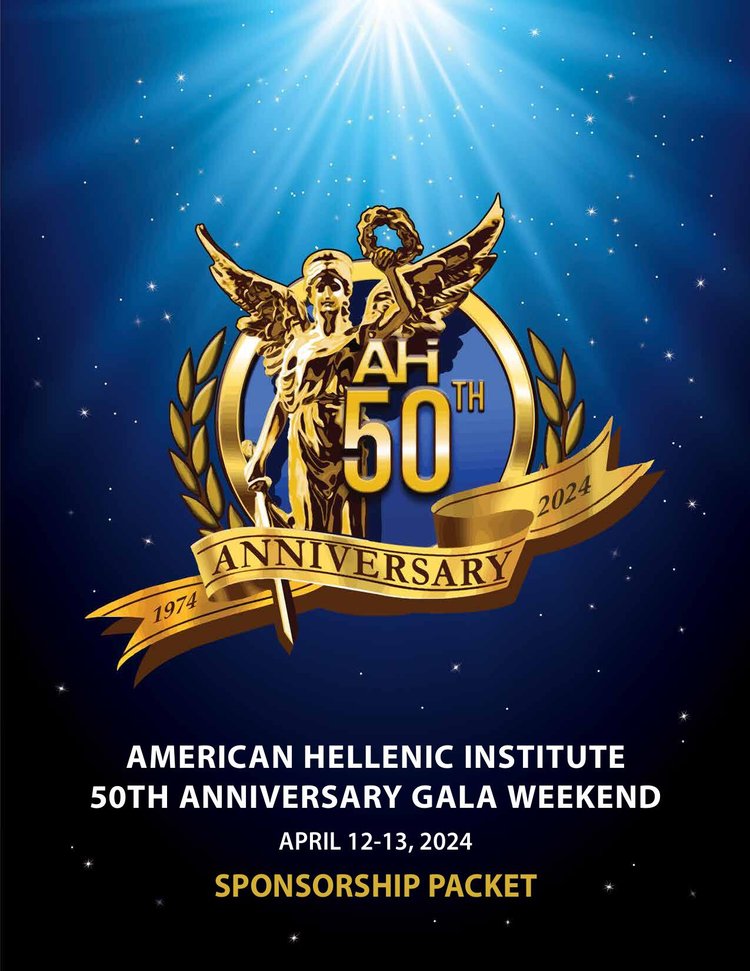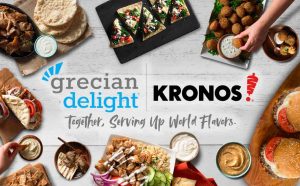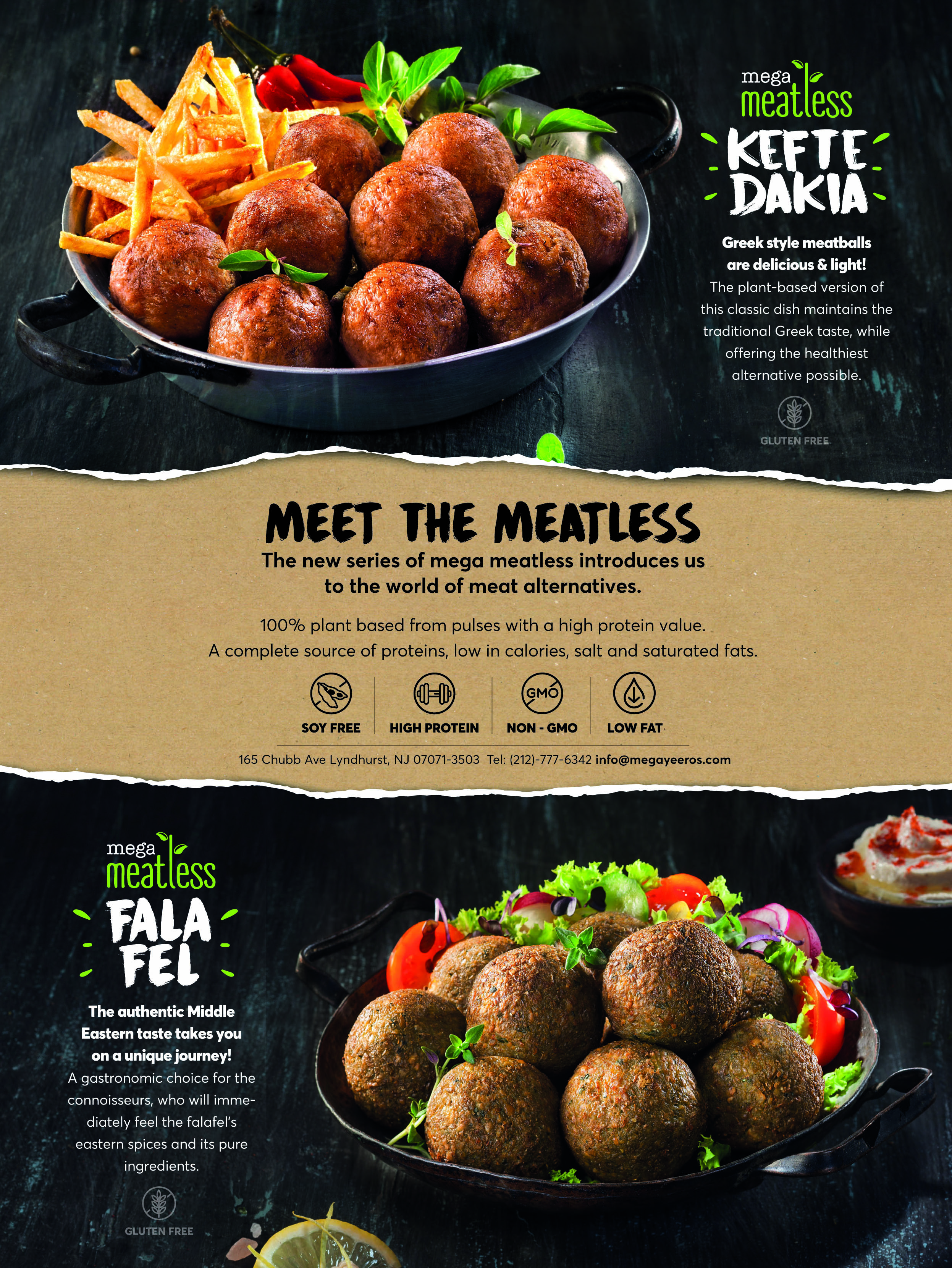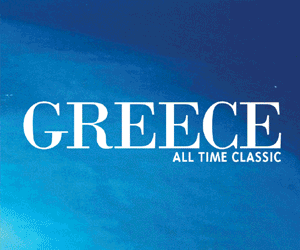The Diner Chronicles
Posted by estiator at 5 August, at 08 : 20 AM Print
FEATURE
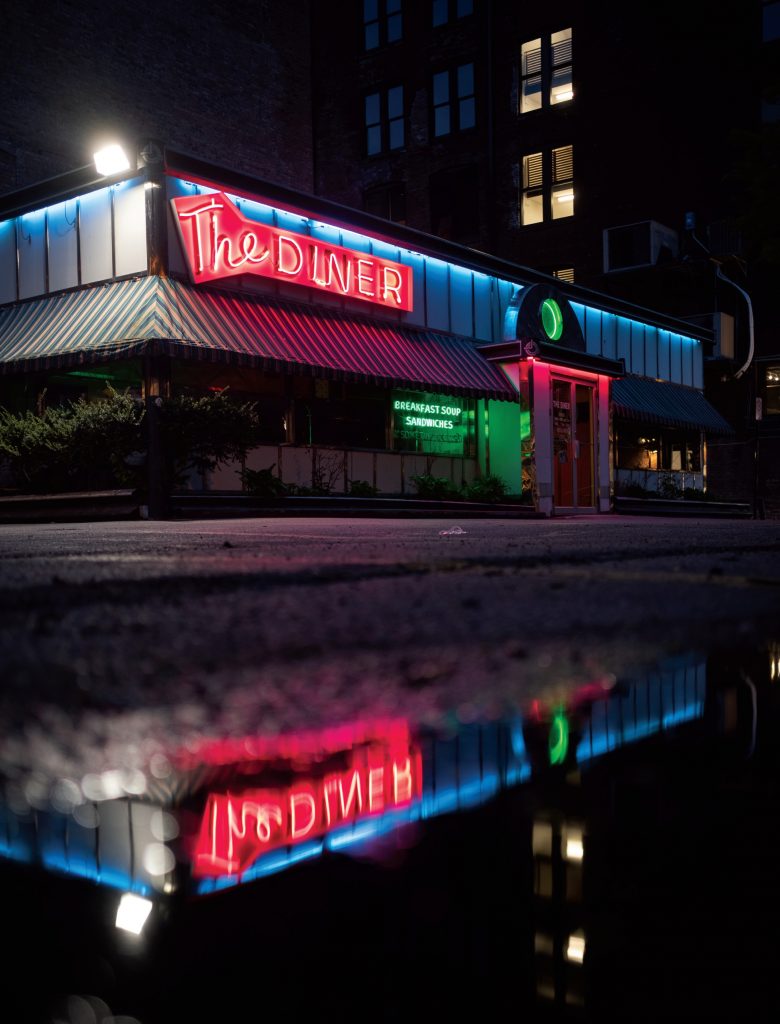
How our small family mainstays are coping during the crisis.
Interviews by Michael Kaminer
FOR THEIR COMMUNITIES, the diners are beacons. They feed crews of loyal regulars and generations of families. Many stay open 24 hours a day, seven days a week. They offer an atmosphere that’s as comforting as their food.
COVID-19 has disrupted all that. How are diner owners coping through the crisis? Three owners of well-established diners spoke to Estiator; these are their stories, in their own words.
[Editor’s note: At press time, New Jersey, New York, and Pennsylvania had loosened restrictions to allow limited outdoor dining. Pennsylvania also moved to allow indoor dining at 50 percent capacity.]
JOHN VELISARIS
Co-owner, Ritter’s Diner, Pittsburgh, PA
A Pittsburgh institution for nearly 70 years, Ritter’s Diner is co-owned by John Velisaris, whose father and uncles bought the restaurant in 1966. Ritter’s has occupied its current home, in the Bloomfield neighborhood, since 1975.
ʻʻThe governor’s shutdown order in Pennsylvania came down March 16. We switched immediately to a takeout and curbside model. The first two weeks were rough. Business tapered off; people didn’t know what was going on. University of Pittsburgh and Carnegie Mellon closed, and we lost all the college students. And we did no breakfast business—people weren’t working.
Before the pandemic, we operated 24 hours a day on weekends, 6 am to 10 pm Monday to Friday. We were busy all the time. Monday to Friday, most of our business came from the city; on weekends, we also had a steady flow of people from the suburbs who grew up in the area and come back to the diner with their families. Breakfast was huge—more than 60 percent of our business was eggs and omelets.
The shutdown made us think: Let’s take this opportunity to reevaluate our business. We have to focus more on lunch and dinner service. More people are eating at home, so let’s do family-style dinners.
I’m posting more on social media than I ever have, but when your nose is to the grindstone, it’s hard to focus. We’re trying to promote the family-style dinners, to-go items, and “take and bake” packages like stuffed peppers or stuffed cabbage rolls. We’re allowing people to buy just one if they want— they don’t have to order a dozen. Some customers keep asking us to make our regular specials, but it’s hard to buy provisions for those, since you don’t know how many people will actually order them.
Some restaurants didn’t even stay open, and I don’t know if they’re going to come back. I have regulars—people who used to come in five or six times a week—who didn’t even know we were open. Some of them are older and don’t know the technology— they’re not on platforms like Facebook. Luckily, it was word of mouth that brought them back.
We’re also dealing with some rising costs. Our paper supply company just brought a delivery. It’s our highest invoice right now. We had to order takeout containers, paper supplies, sanitizers. We‘ve known the delivery guy for 30 years. I told him, “We’re going to give you all our money.” I’m hearing rumblings that it’s going to be hard to get takeout containers, since everyone’s using them now. So you worry about that.
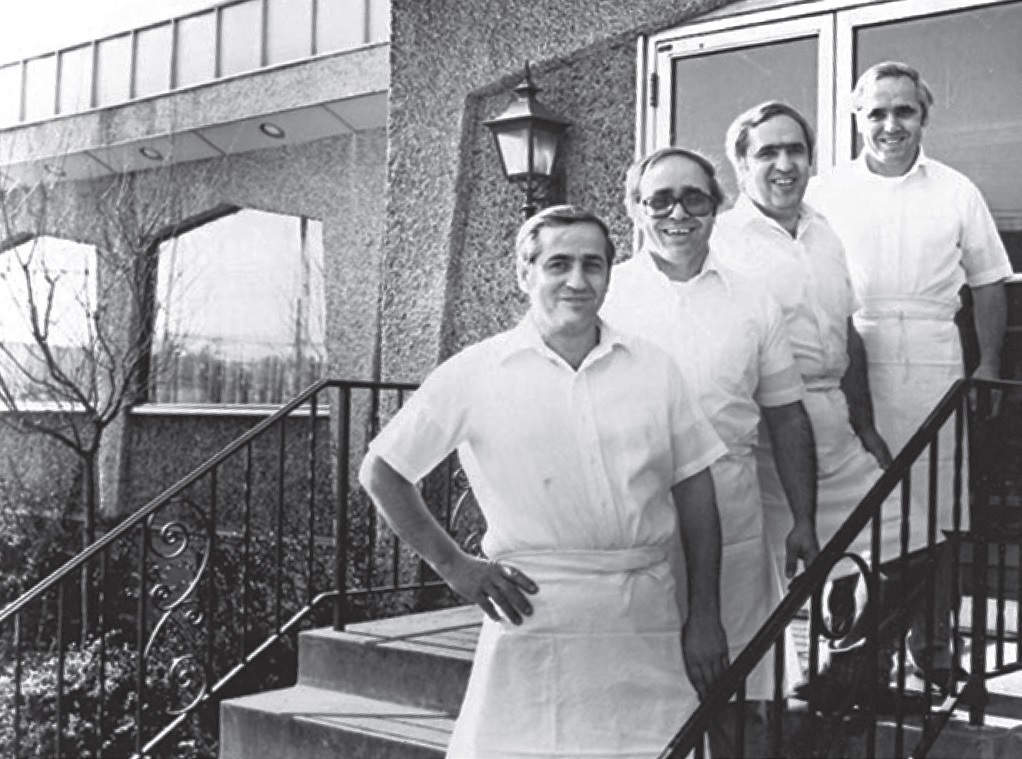
the original owners of Ritter’s Diner (left to right), George, Peter, Orestis, and Perry Velisaris 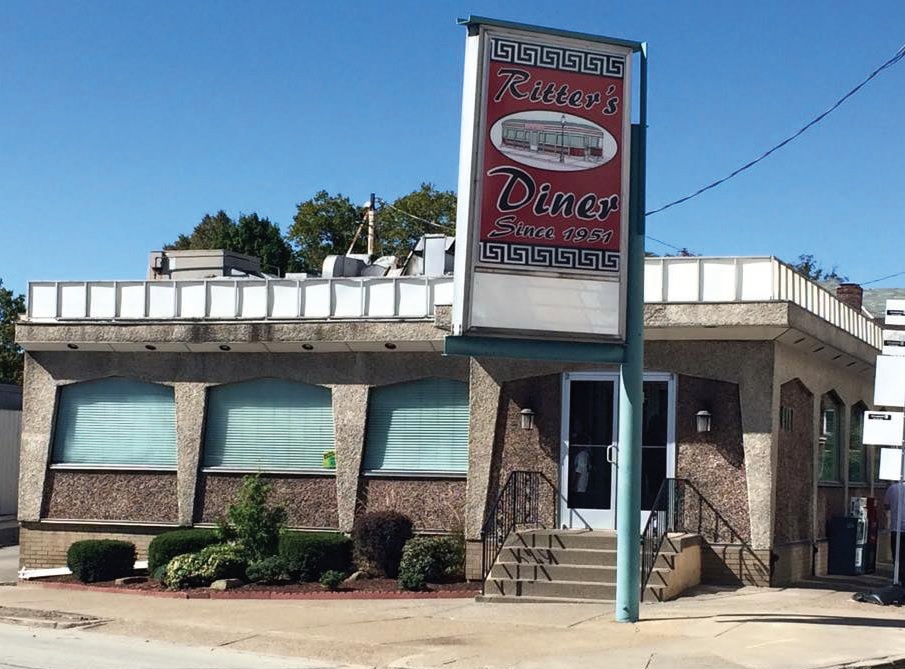
Ritter’s Diner today.
The only thing that’s gone up recently is meats, which we expected. Everyone else is being fair. We fell behind on one invoice from one of our biggest purveyors, a company we’ve done business with for 50 years. He didn’t care. He knows we’re here, we’re working, and we will pay our bills.
When the stay-at-home order expires, we may shift a bit more to breakfast, and maybe add more dinner items. Basically, week to week, we’re waiting to hear from the governor. Once things start reopening, I truly believe it’s going to be down the middle. Some people will be hesitant to return. Others will be chomping at the bit to get out, get back to their breakfast and coffee at Ritter’s, enjoy their dinner here, and get back to their routine.
KALERGIS DELLAPORTAS
General manager, Bel-Aire Diner, Queens, NY
An Astoria, Queens, mainstay for 55 years, the Bel-Aire Diner has been run by Archie Dellaportas and son Kalergis since 1996. In a “pivot” that generated press around the world, the diner opened a drive-in movie theater in its parking lot in May, premiering with 1987’s “Dirty Dancing.” Screenings have been selling out as fast as they’re announced.
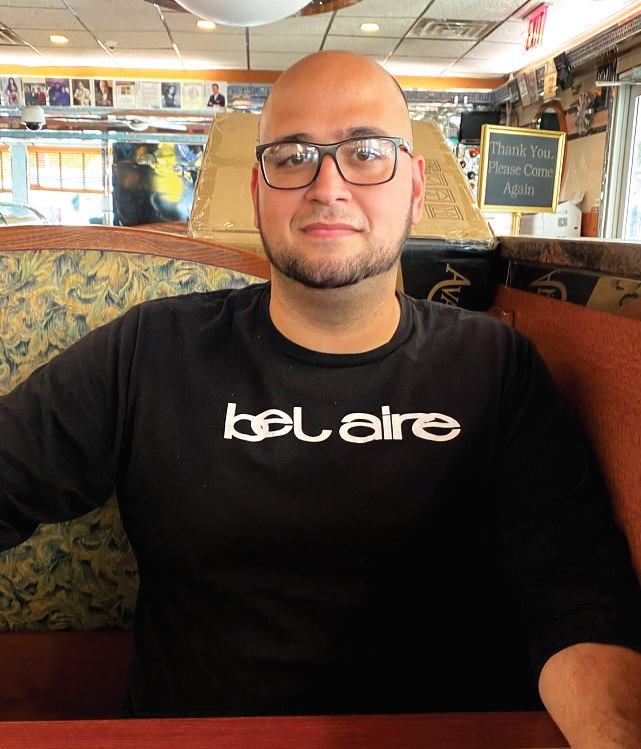
ʻʻBefore the pandemic, we were open 24/7, 365 days a year. In the 21 years my father has owned the diner, we’ve never closed. A few years ago, we went through a full renovation and expansion of our building, and we didn’t even close through that.
We had a very strong delivery business, which made transitioning into the pandemic much easier. We have the procedures and staff in place to switch over completely. That said, our business is 4,800 square feet. We pay rent and electricity. There are a lot of maintenance costs. The business is not built for delivery only.
The first two weeks of lockdown, before stimulus payments kicked in, we lost about 70 percent of our business. We thought about closing, which we’d never done. But people would call to order in the early morning or late at night— older people, people who didn’t want to leave the house. We made a decision to be there for the community. I don’t want to overstate it, but diners have provided a beacon of hope. We’ve offered something consistent.
It’s been a huge change for us. Before the pandemic, most of our business was Saturday and Sunday brunch. They were are busiest, most moneymaking, highest-staffed hours. Aside from that, we had a consistent flow of people in the restaurant at all times, with the exception of 2 am to 6 am, which was mostly for cleaning up.
When we switched to delivery and takeout only, we didn’t edit down our menu, except for daily specials, which we stopped. We also locked in three soups—chicken orzo, cream of turkey, and Manhattan clam chowder—instead of offering different soups every day. We used to make our own challah, but our baker got furloughed, so we’re buying it now.
One day in April, my manager and I were brainstorming about how to pick things up. He suggested we try a drive-in. We kept the first one to friends, family, and loyal customers. But it blew up. When we announced five shows on Instagram, they sold out in one minute.
The $32 ticket price per car may seem high, but you have to consider we’re paying for movie licensing, screen rental, and staff. You don’t have to eat if you don’t want to, but we are making money on food. We’re averaging about $32 on orders per movie ticket.
Now that we have this in place, with approvals from our landlord, we’d like to continue it indefinitely. We may buy our own screen, which would cut costs significantly. We’re hoping to offer movies for $12 per car. People see a regular movie for $17 a ticket anyway.
The pandemic has accelerated what was already happening in New York City as far as takeout and delivery. When we opened 20 years ago, delivery was an afterthought. We had one counter person who would answer phones. Now we have five people who just answer phones full-time. And delivery apps are gaining an ever-increasing share of profits.
It worries me. Takeout is harder and less profitable. We’re set up for it, but it means changing our business model completely, and not having weekend brunch like we used to. It’s going to be like this at least for the next year, until people get super comfortable. And I hope I’m wrong, but I don’t think we’re ever going to see lines out the door like we used to.
SPIRO HADJIYEROU
Owner, Colonial Diner, Lyndhurst, NJ
ʻʻI’ve owned the diner for about a decade. It dates back to 1959, and it was probably a roadhouse before that. Most of my people have been with me for 10 years. We treat staff like family, and our staff treats customers like family.
I’m also chairman of the Delaware Valley Purchasing Group, which serves more than 1,250 independently owned restaurants in seven states. When the dust settles, I don’t know how many are going to survive. Some of our members are people in the late 60s or early 70s who’d been contemplating getting out of it. This is their excuse.
The diner was struggling before this, with all the chains that have opened up around us. Now it’s going to be a little bit harder. Someone once calculated we’ve got 57 national chain brands nearby. They’re direct competition to us. Applebee’s, Denny’s, Dunkin, Starbucks, iHop, you name it. What I’ve heard now is that a couple may not reopen.
Some big companies got PPP [Paycheck Protection Program] loans—I hope people remember that. Ruth’s Chris, a billion-dollar company, took the money. At the Delaware Valley Purchasing Group, many of our members are still waiting for their loans, or just getting approvals.
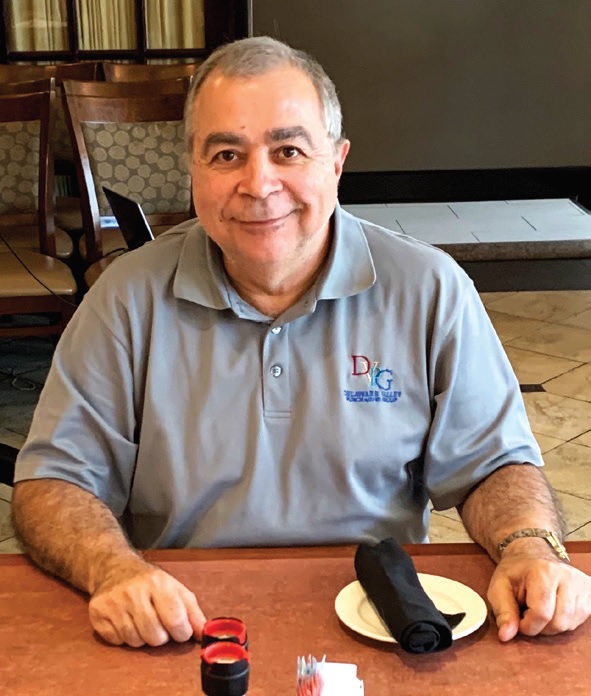
We closed the diner on March 16th, when the (SOCIAL DISTANCING) order from Governor Phil Murphy came down, and reopened in May. We hadn’t been set up for delivery. And we didn’t want to deal with third-party deliveries. We set up our own system for ordering and delivery. We cut our menu down to about two pages. But we’re still not making a profit. I still have high real-estate taxes, loans, a mortgage.
I was ecstatically happy when New York capped fees that third-party services can charge. I’m hoping New Jersey does the same. UberEats and GrubHub were taking 30 percent. Nobody has an extra 30 percent to make on any order.
We did have a few advantages going into this. We have a loyalty card with more than 5,000 members, so it was easier to stay in touch with our regular customers. We emailed them to let them know we were coming back. But also had to let them know it’s safe to come out. It’s, “We’re your diner, and we’ll always be your diner. We’re just going to be a different diner.”
Once we posted on social media that we were back, we got more than 1,000 comments and visits. We’ve always had people who’ve moved out of New Jersey tell us how much the diner means to them. And our local government has been great.
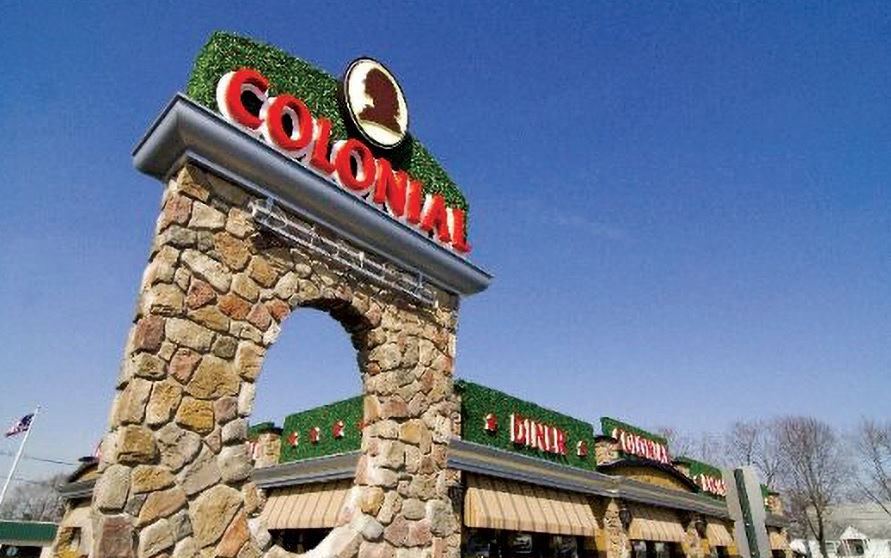
Once we said we’re coming back, our mayor and state assemblywoman put us on their web sites.
The State of New Jersey allowed restaurants to open to outdoor dining on June 15, with limited seating. We’re in the process of creating a space in our parking lot. We have one tent up, and we’re getting another one up, for a total of 60 seats. We have township approvals, and we’re hoping people are ready to come out and dine, weather permitting.
Everything’s going to be different. We need disposable menus. We’ll need additional cleaning products to disinfect tables. We’ll continue operating with a limited menu— you can’t maintain everything with lower volume.
The biggest thing I’ve seen is how happy everyone was that we’re back. People were waving. Some were in tears. People want to hug you, but they can’t.

